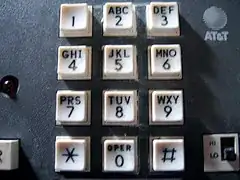There is direct confirmation from Jetblue via CNN now.
American Airlines and IBM developed SABRE to facilitate making travel reservations by telephone at scale, in real time, in the late 1960's. However, rotary and touch-tone phones didn't have a Q or Z then.
The number 1 belonged to long distance calls, and 0 for the operator.
That left eight numbers to cover the entire alphabet. Bell Telephone
Company assigned three letters to each number and left out the two
letters we use least: 'Q' and 'Z.' That's how airlines became
dependent on a phone-based reservation system with a limited alphabet.
Sabre still exists, and partners with most airlines, including JetBlue. JetBlue told CNN that the "no Q or Z" rule still applies for JetBlue employees accessing Sabre. JetBlue passed the restriction along to TrueBlue members for their passwords, as described in the company password FAQ.
The rule was quietly dropped and is no longer active. You can
currently create nearly any password you want, as long as it's between
eight and 20 characters. JetBlue told CNN it's now updating its FAQ
page, but the company wouldn't comment on when they changed the rule.
Qs and Zs are allowed now. It is not a legacy system holdover for Sabre, but it was for retail customers.
